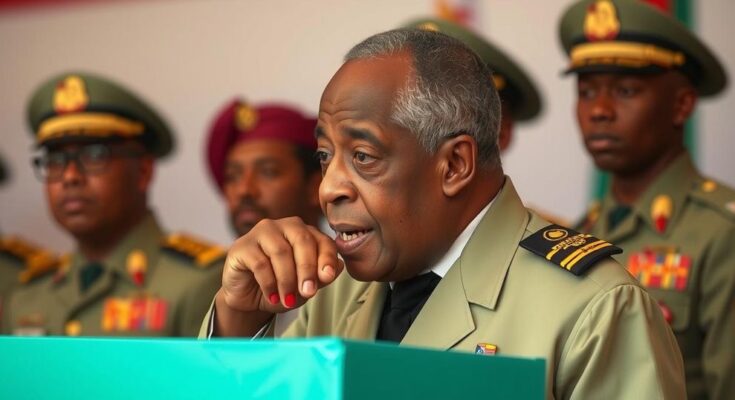Chad conducted a general election amidst opposition calls for a boycott, resulting in a low turnout of 38 percent. President Deby urged participation, while many voters expressed skepticism about the electoral legitimacy. Discrepancies were noted, including missing ballots, raising concerns over the integrity of the electoral process. This election occurs against a backdrop of violence from Boko Haram and political unrest.
Chad held a general election on Sunday, a move the government deems crucial for transitioning away from military governance following three years of army rule. Voter turnout was reported at a discouraging 38 percent, influenced significantly by opposition calls for a boycott. Despite government assurances of a legitimate electoral process, opposition figures assert that the election outcomes were predetermined. President Mahamat Idriss Deby Itno, who rose to power after a military takeover in 2021, encouraged citizens to vote, branding the day historic. Many voters, disillusioned by a lack of genuine democratic progress, voiced skepticism about the electoral process. The election’s logistical challenges were evident, as soldiers and police voted a day in advance. While the election authority claimed record participation among armed forces and nomadic communities, the opposition cited irregularities, including the disappearance of ballots. This election unfolds amid critical conditions such as threats from Boko Haram and regional instability, suggesting the complex nature of Chad’s path toward democracy.
Chad’s political landscape has been marred by military rule since 2021 when President Mahamat Idriss Deby Itno took control following the death of his father, who had governed for thirty years. The current election is portrayed by the government as a pivotal step toward reestablishing civilian governance. However, significant opposition exists, urging citizens to boycott due to concerns over electoral integrity. This situation unfolds within a context of ongoing socio-political challenges exacerbated by instability in neighboring regions, including attacks by militant groups and growing tensions within Chad itself.
In conclusion, Chad’s recent general election symbolizes the government’s attempt to pivot towards democracy, yet the marked voter apathy and opposition resistance signal deep-rooted mistrust in the electoral process. As the country grapples with the aftermath of military rule, the clarity of its democratic transition remains uncertain amid allegations of foregone outcomes and logistical anomalies in the voting process.
Original Source: www.myleaderpaper.com




